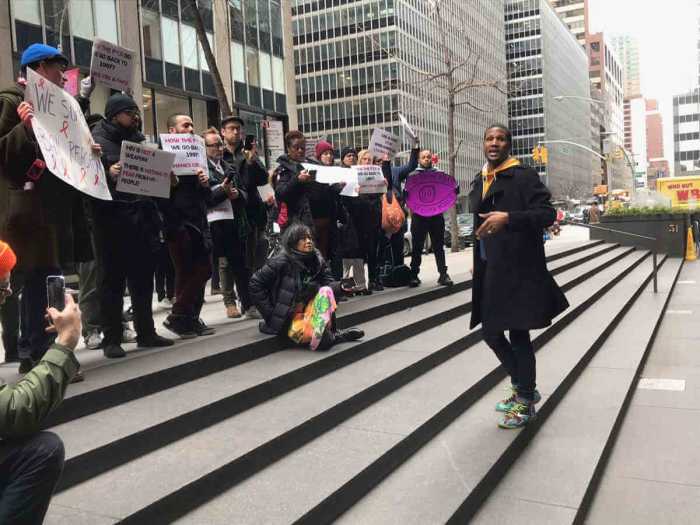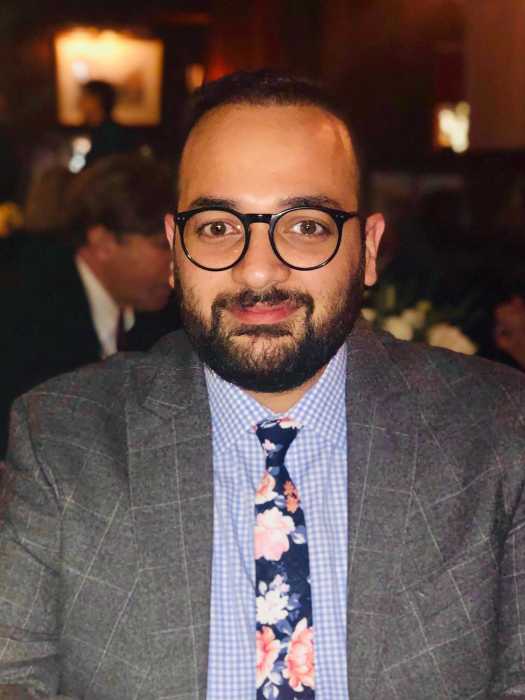Dr. Mary Bassett, the city health commissioner. | GAY CITY NEW
BY DUNCAN OSBORNE | Following their first meeting with New York City’s new health commissioner, AIDS groups say they are seeing a shift in the city’s willingness to talk to them and to invite their input.
“In part, it was significant because it represented open doors between the [city health department] and the community,” said Sean Barry, the executive director of VOCAL-NY, an AIDS advocacy group. “If nothing else, that’s a big step forward.”
Roughly 15 advocates representing at least eight leading AIDS and social services groups met with Dr. Mary Bassett, the city’s health commissioner, on April 1. That follows earlier meetings with Lilliam Barrios-Paoli, the deputy mayor for health and human services, and Steven Banks, the commissioner of the city’s Human Resources Administration (HRA). The HIV/ AIDS Services Administration, which serves people with AIDS, is an HRA unit.
Goal of ending AIDS by 2020 a meeting focus, but no commitment yet on plan from Dr. Mary Bassett
Daniel Tietz, executive director of ACRIA, an AIDS services group, said he saw a “tonal shift” in these meetings.
“They’re willing to get to yes as opposed to no,” Tietz said. “There’s a clear shift that they’re looking to work together. That’s really valuable.”
Dr. Thomas Frieden, who ran the city health department from 2002 to 2009, had vocal supporters and detractors. Some of Frieden’s most committed opponents were among the groups that met with Bassett. Dr. Thomas Farley, who replaced Frieden, inspired no particularly strong reactions, though in January, AIDS groups publicly asked Mayor Bill de Blasio to replace him.
After 12 years of feeling shut out, the meeting was a welcome beginning.
“It felt more like an orientation for one another and, in diplomatic speak, a confidence-building session,” Tietz said of the 90-minute meeting with Bassett.
A central matter for AIDS groups is a plan to end AIDS that has been endorsed by more than 30 organizations. The plan is an ambitious mix of longstanding demands and some new ones that the groups believe will cut new HIV infections substantially by 2020.
After six months of negotiating, the plan was endorsed by Dr. Nirav Shah, the state health commissioner, on January 9. The groups were not expecting Bassett to back the plan on April 1, though much of the meeting was taken up with discussing the plan’s major components.
“She didn’t use ‘I’m all in on the end of AIDS’ though we would have loved that,” Tietz said. “We heard no push-back.”
An element of the plan — capping rent payments at 30 percent of income for people with AIDS who live in supportive housing — was enacted in the state budget this year, with the mayor actively supporting the initiative that involves both city and state money.
Other plan components include getting more HIV-positive people into treatment, which improves their long term health and makes them less infectious, and more widely using pre-exposure prophylaxis (PrEP), or giving uninfected people anti-HIV drugs to prevent infection, and post-exposure prophylaxis (PEP), or giving anti-HIV drugs to someone who has recently been exposed to the virus to stop infection from taking hold.
The biomedical interventions, as treatment as prevention, PrEP, and PEP are called, will require price reductions for anti-HIV drugs. Some media reports have indicated that the state Medicaid program has won such cuts from Gilead Sciences, the drug company that sells an estimated 40 to 50 percent of the anti-HIV drugs in New York and is the only one currently licensed to sell a PrEP drug in the US. As Gay City News went to press, however, Gilead, the state health department, and Governor Andrew Cuomo’s press office had not responded to emails seeking confirmation that such a deal had been closed.
The city health department will begin a modest program to promote PrEP to medical providers in May.
“They talked about their existing plans for PrEP rollout,” Barry said.
While PrEP, PEP, and treatment as prevention have proven efficacy, the issue with these biomedical interventions has been getting people to take the drugs in the first place and to use them consistently once they begin. PrEP, in particular, has shown adherence problems.
“She did talk about concerns for healthy people to take a daily pill,” Barry said “To the extent that she has concerns around PrEP scalability, they’re around adherence.”




































